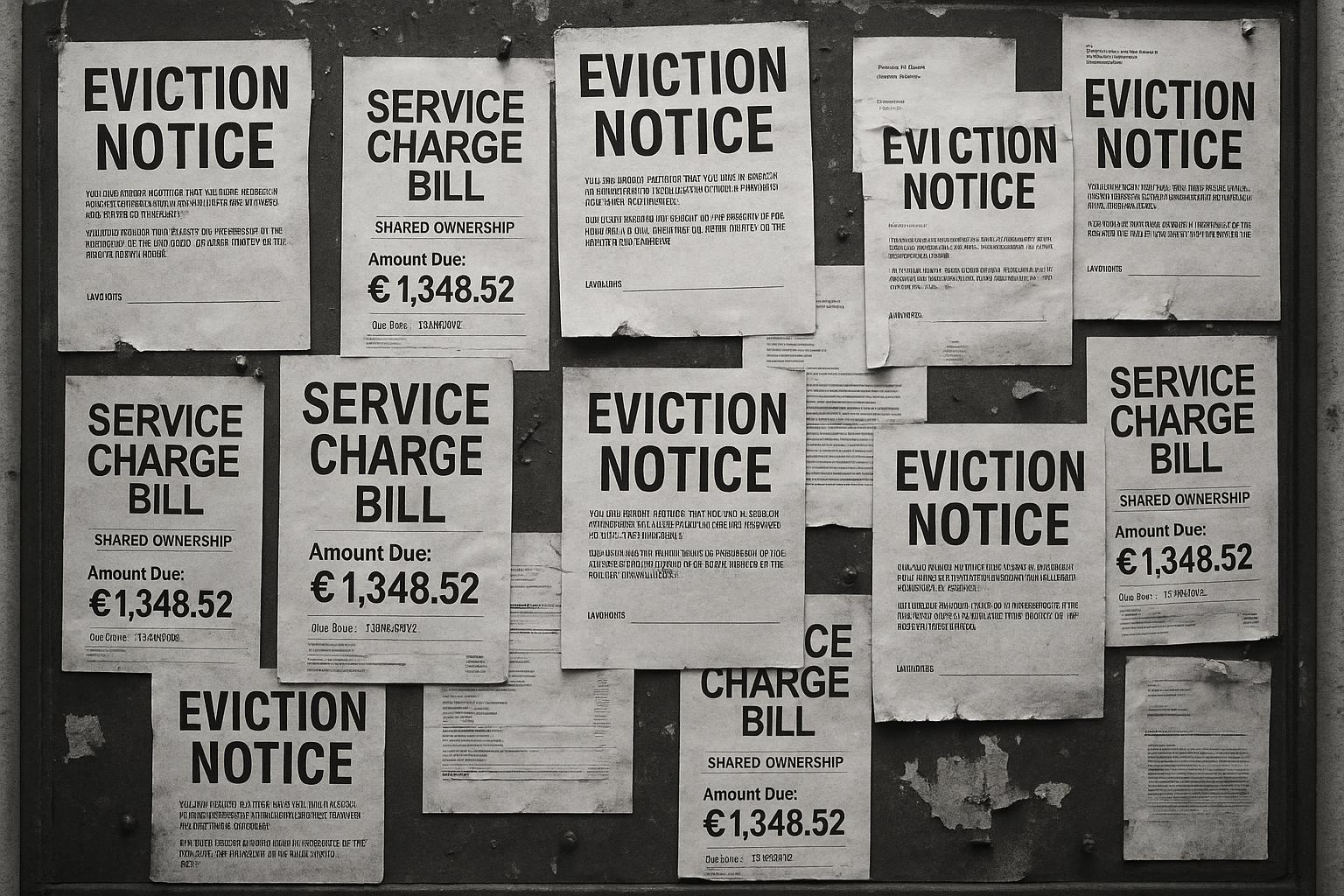Shared ownership was conceived as a solution to the pressing need for affordable housing, particularly aimed at assisting low-paid key workers in expensive urban centres across the UK. However, as the experiences of many shared owners unfold, it appears the initial promise is giving way to widespread dissatisfaction and financial strain. The challenges faced by individuals in these schemes reveal a mounting discontent, punctuated by alarming statistics. Complaints related to shared ownership schemes have soared by nearly 400% over the last five years, with issues ranging from skyrocketing service charges to difficulties in selling properties, as indicated by data obtained through a BBC Freedom of Information request.
Many shared owners, like Chris and Diana from east London, describe their experience as a "con": after purchasing a shared ownership property at the onset of the pandemic, they struggled to sell, ultimately losing £10,000 due to their home’s decreased value. “It’s a big con and we felt trapped,” Diana remarked. These sentiments reflect a broader reality; the shared ownership model often subjects homeowners to the financial obligations of renters without granting them the rights typically associated with homeownership. With approximately 250,000 shared ownership households currently in England, the model can seem more of a pitfall than a stepping stone.
Kathy, who has owned a share of a flat in north London since 2017, articulated the burdensome nature of escalating costs. Despite a love for her home, she has been compelled to take in a lodger to cover rising service charges that have increased by over £200 a month. “I can’t afford to increase my share,” she stated, highlighting the grim reality that a lack of financial transparency and service inadequacies has turned her dream of ownership into a nightmare. Her experience is echoed by that of Fatima, a single mother who entered shared ownership after exhausting options as a renter. She now faces an 80% increase in service charges and deplorable living conditions, stating, “It’s always on my mind. It causes a lot of anxiety.”
The serious issues with shared ownership are often compounded by the complex relationships between various stakeholders in the housing system. Housing Ombudsman Richard Blakeway notes that the “inherent complexities” of these arrangements lead to a breakdown in communication between landlords and residents, which exacerbates frustrations. As he highlighted, there exists a “mismatch” between the expectations of shared owners and the realities they face. This systemic inadequacy is further illuminated by a report from the Levelling Up, Housing and Communities Committee which criticises shared ownership schemes for failing to provide a genuine pathway to homeownership.
While some in the housing sector, such as the Shared Ownership Council, claim that shared ownership can still play a vital role in meeting housing needs, critics argue that established problems have not yet been effectively addressed. A response from Timea Szabo, representing the Shared Owners Network, proclaimed that the recent initiative for a voluntary code of best practices is “too little, too late.” This sentiment resonates with many shared owners who express scepticism about the ability of housing associations, which are often accused of mis-selling properties, to fulfil their obligations. Reports reveal service charge increases that can reach 400% after residents move in, often far exceeding initial estimates offered at the time of sale.
In the wake of numerous testimonies and growing outcry, governmental authorities assert they are aware of the challenges faced by shared owners and are contemplating actions to improve transparency and accountability within the system. However, many shared owners remain sceptical about whether these efforts will genuinely address the issues that have left them feeling trapped in unaffordable housing.
As individuals like Diana, Chris, Kathy, and Fatima continue to navigate their precarious situations, the broader shared ownership landscape stands at a crossroads. The government and housing associations are now under increased pressure to ensure that shared ownership schemes truly facilitate a viable path to homeownership rather than ensnaring buyers in a cycle of financial strain and disillusionment.
📌 Reference Map:
- Paragraph 1 – [1], [2]
- Paragraph 2 – [1], [3], [4]
- Paragraph 3 – [5], [6]
- Paragraph 4 – [1], [7]
- Paragraph 5 – [2], [3]
Source: Noah Wire Services
